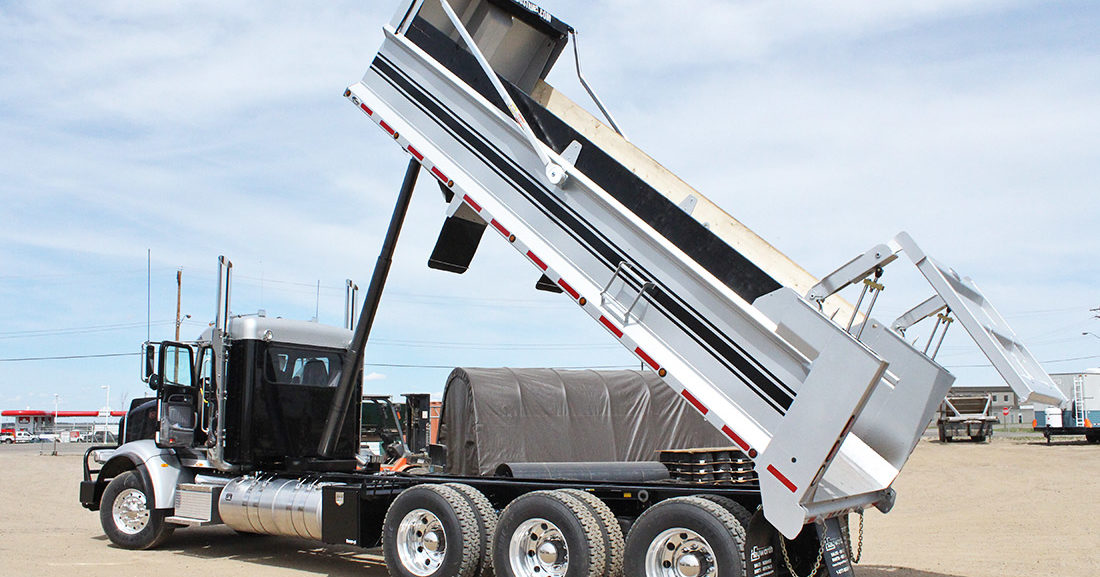While rolling your end dump trailer when dumping is a potential risk, it is not an event that needs to happen. By being aware of what can cause your trailer to rollover, you can prevent this unfortunate event from ever happening.
Potential Causes of a Rollover
- Wind: Do not attempt dumping operations in high gusty wind conditions. If possible, raise/dump directly into the wind.
- Terrain: Uneven terrain, causing the trailer wheels to be 3 ½ inches to 4 inches higher than the other side, puts the top of the body 12 inches to 14 inches off center when the cylinder is fully extended. On fresh fill, loaded trailer wheels may sink on one side, again setting the potential tip over. On road construction, the crown is also critical on spread application, as is dumping on a slope. A 4 inch plus, height differential of wheels on axle 8 feet wide, is another rollover potential. To prevent a rollover, the tractor and trailer should be in a straight line and on firm level ground with all tires in contact with the ground.
- Hung Loads: A hung load is commodity that does not discharge when a dump body is raised to an elevated position. This condition exists due to surface adhesion between the commodity and the interior of the dump body. In order to avoid a rollover due to a hung over, the driver should be warned by an observer or be aware of the materials moisture content. If this condition exists, immediately lower the dump body.
- Humping: Humping is rapid acceleration/deceleration method use to loosen a hung load from a trailer. If the load is off center and the trailer is moved, a rollover may occur. Also, serious damage to the hoist may occur if an extreme humping motion is used to get a stick load out of the body.
- Jackknife: A jackknife position of the tractor with the trailer is not recommended when dumping. In a jackknifed position, the upper coupler pivots on bearings, contributing nothing to dump stability. When the tractor and trailer are straight, the coupler bearings are normally 34 inches apart assisting in stabilizing the dump.
- Tires: A blown tire or a severely under-inflated tire can cause dump instability when dumping. Always check tires visually for cuts or punctures by nail and metals. Make sure all tires are inflated properly. Proper tire inflation also improves wear and fuel economy.
- Stay at the Controls: An operator who fails to stay at the controls will never control the body when it starts to lean over for a rollover. If a problem exists, the body can be lowered and the operator can check and remedy any potential problems, then resume dumping the trailer.
- Overloading: Overloading is a very common occurrence that aggravates all of the above conditions.
By being aware of these risks and taking the appropriate precautions, you can substantially reduce your risk of a rollover.

